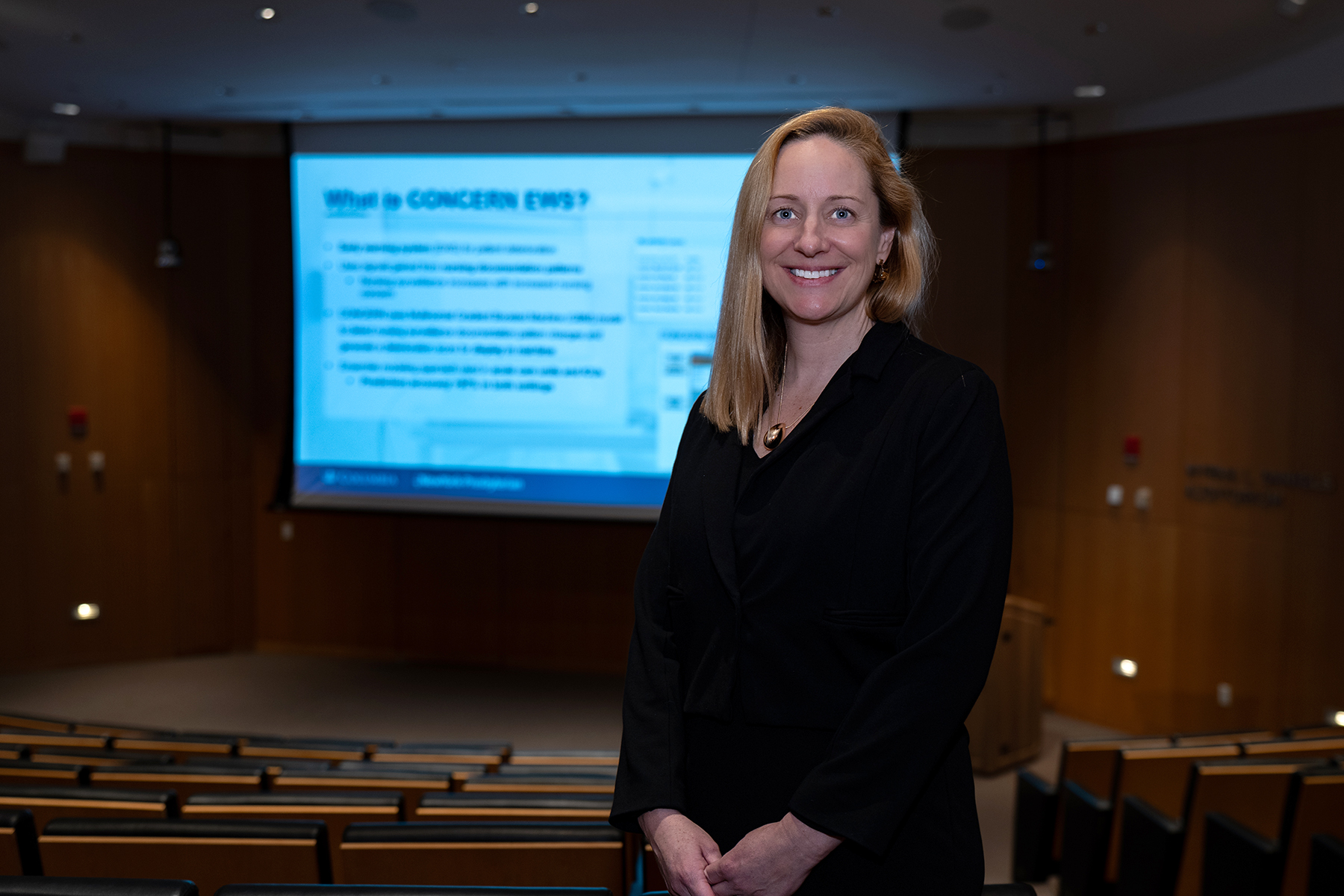Nurses and AI Collaborate to Save Lives, Reduce Hospital Stays
Every day, nurses pick up on subtle but critical changes in their patients—warning signs that appear long before vital signs signal trouble. The CONCERN Early Warning System (EWS) harnesses this expertise, using machine learning to analyze nursing documentation patterns and predict patient deterioration in the hospital up to 42 hours earlier than traditional methods.
By identifying risk sooner, patients receive timely interventions, leading to shorter hospital stays and fewer deaths. Findings from a year-long, multi-hospital trial highlight the potential of AI and nursing insight working together to improve patient outcomes—offering hope for faster, life-saving care before it’s too late.
“Our study shows that nurses are often right in their early identification that a patient may be in trouble,” said lead author Sarah Rossetti, Associate Professor of Biomedical Informatics and Nursing at Columbia University. “By analyzing patterns in their documentation, the CONCERN Early Warning System can detect signs of deterioration up to two days earlier than traditional methods and lower the risk of death and sepsis while shortening hospital stays. That extra time for the care team to intervene saved lives.”
The findings were published Apr. 2 in Nature Medicine and highlight an AI tool that can aid patient care throughout other healthcare systems.
What is CONCERN?
Unlike traditional systems that rely solely on vital signs, the COmmunicating Narrative Concerns Entered by RNs (CONCERN) Early Warning System (EWS) is a groundbreaking AI tool that transforms early observations into potentially life-saving insights. CONCERN analyzes patterns in nurses’ electronic health record (EHR) documentation—such as the timing and frequency of assessments—to detect early signs of deterioration.
The results are promising: Across two large health systems and nearly 60,000 unique patients, CONCERN led to a 35.6% reduction in mortality risk, an average hospital stay shortened by more than half a day, and a 7.5% decrease in sepsis risk.
There was a 24.9% increased risk of unanticipated ICU transfers compared with usual-care, which can represent a timely escalation of care based on the team’s increased situational awareness of patient deterioration risk.
CONCERN Reflects Nurses’ Concerns
Nurses often recognize when a patient is showing signs of deterioration, but their concerns may not cause immediate intervention, such as an ICU transfer. CONCERN captures those subtle warning signs in a real-time prediction model that can save critical hours—in some cases, days—to provide the patient the care that is (or will soon be) needed.
CONCERN models signs of nursing concern, such as increased frequency of assessments and assessments performed at uncommon times. These signals are integrated into a model that generates hourly, easy-to-read risk scores of green (low), yellow (increased), or red (high) to provide support to clinical decision-making.
Our study shows that nurses are often right in their early identification that a patient may be in trouble. By analyzing patterns in their documentation, the CONCERN Early Warning System can detect signs of deterioration up to two days earlier than traditional methods and lower the risk of death and sepsis while shortening hospital stays. That extra time for the care team to intervene saved lives.
Sarah Rossetti
This system, designed with nurses and physicians to be easy for clinicians to use without increasing EHR burden, ensures that small but meaningful changes don’t go unnoticed, giving care teams crucial extra time to step in before a patient’s condition worsens.
“The CONCERN EWS is a nurse-centered AI tool, which means it would not work without the decisions and expert opinions of nurses as its data inputs,” Rossetti said. It analyzes nurses’ documented decisions and actions, using AI to detect patterns that signal concern about a patient’s deterioration. It illuminates this detected concern to the care team, prompting team discussions to escalate care early enough to successfully prevent bad outcomes.”
AI as a Partner, not a Replacement
As artificial intelligence becomes more prevalent in healthcare, many clinicians wonder about its role in decision-making. Will AI be trusted to make critical decisions? Will AI replace human expertise.
The CONCERN team believes AI is a tool, not a replacement. Like a stethoscope or blood pressure monitor, CONCERN EWS is designed to support, not replace, clinical judgment. By making nurses’ expert instincts visible to the entire care team, this technology ensures faster interventions, better outcomes, and ultimately, more lives saved.
“Nurses are particularly skilled and experienced in detecting when something is wrong with patients under their care,” Rossetti said. “When we can combine that expertise with AI, we can produce real-time, actionable insights that save lives.”
Additional Information
The paper “Real-time surveillance system for patient deterioration: a pragmatic cluster-randomized 2 controlled trial of the CONCERN Early Warning System,” was published in Nature Medicine on April 2.
All authors (from Columbia unless noted): Sarah C. Rossetti, PhD, RN, Patricia C. Dykes PhD, RN (Brigham and Women’s Hospital), Chris Knaplund, MPhil, Sandy Cho, RN, MPH (Newton-Wellesley Hospital), Jennifer Withall, PhD, RN, Graham Lowenthal (Brigham and Women’s Hospital), David Albers, PhD, Rachel Y. Lee, PhD, RN, Haomiao Jia, PhD, Suzanne Bakken, PhD, RN, Min-Jeoung Kang, PhD, RN (Brigham and Women’s Hospital), Frank Y. Chang, MSE (Brigham and Women’s Hospital), Li Zhou, MD, PhD (Brigham and Women’s Hospital), David W. Bates, MD, MSc (Brigham and Women’s Hospital), Temiloluwa Daramola, Fang Liu, MPH (University of Pennsylvania), Jessica Schwartz-Dillard, PhD, RN, Mai Tran, Syed Mohtashim Abbas Bokhari, PhD, Jennifer Thate, PhD, RN (Siena College), Kenrick D. Cato, PhD, RN (University of Pennsylvania)


